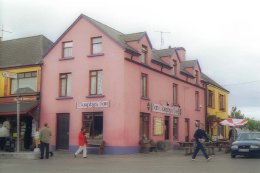Ireland has long been a land of troubles, and the native Gaelic language and culture has often been embattled as a result of colonization. There is still much controversy within Ireland as different cultures and political perspectives attempt to find harmony with one another. But recent developments show the native Gaelic language and culture are still strong and increasingly accepted as ‘here-to-stay’ by non-Gaelic people living in Ireland. The recent celebration of the fourth annual Irish language Rights and Revelry event is a good example of this.
The event is a chance for Irish speakers to showcase their language and culture to others, as well as being an opportunity for locals to celebrate their language and enjoy cultural displays on a large scale. The event includes bus tours, a parade and lots of Irish music. While the event has a festival atmosphere, there are more serious matters underpinning it as pressure increases for official legislation recognizing Irish language rights.
Elsewhere in the UK, the Gaelic culture and language are also being celebrated through music and festivities. In Wigtown, Scotland, a Feis will soon be held to celebrate Gaelic. A Feis is a combination of feasting and music shows designed to keep the culture vibrant and at the forefront of the minds of locals who sometimes feel detached from their roots. The Feis tradition also includes workshops and classes, allowing people to increase their knowledge of the language or Gaelic art forms such as dance, as well as musical instruments such as the fiddle or accordion.
In other news related to Irish language, Nobel Prize winning poet Seamus Heaney is taking his talents to America. Heaney has been celebrated for creating profound works of art that can be appreciated by everyday people. In particular, Irish people have taken pride in Heaney’s work due to the often humble, down-to-earth nature of the imagery he chooses – which often reflect the Irish working ethic and the tough recent history of Ireland. Heaney himself says his own work has been influenced by a consciousness of the battle between English and Irish language, with English being that language which had forced out his native tongue.

